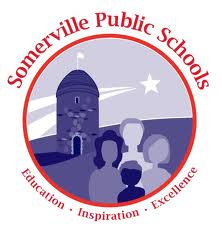Team:BostonU/Human Practices
From 2012.igem.org
| (19 intermediate revisions not shown) | |||
| Line 67: | Line 67: | ||
text-align: left; | text-align: left; | ||
color: #000000; | color: #000000; | ||
| - | font-size: | + | font-size: 12pt; |
} | } | ||
| Line 131: | Line 131: | ||
<li><a href="https://2012.igem.org/Team:BostonU/NEGEM">New England iGEM Regional Meeting</a></li> | <li><a href="https://2012.igem.org/Team:BostonU/NEGEM">New England iGEM Regional Meeting</a></li> | ||
<li><a href="https://2012.igem.org/Team:BostonU/Human Practices">Human Practices</a></li> | <li><a href="https://2012.igem.org/Team:BostonU/Human Practices">Human Practices</a></li> | ||
| - | <li><a href="https://2012.igem.org/Team:BostonU/Safety">Safety</a> | + | <li><a href="https://2012.igem.org/Team:BostonU/Safety">Safety</a> |
| - | + | ||
</ul> | </ul> | ||
| Line 147: | Line 146: | ||
<br> | <br> | ||
<h4>Human Practices</h4> | <h4>Human Practices</h4> | ||
| - | <br | + | <br> |
| - | < | + | <img src="http://www.thesomervillenews.com/wp-content/uploads/2012/03/somerville-school.jpg" width="150px"><ul> |
| - | < | + | <h7><p dir="ltr">This year the Boston University iGEM team seeks to not only perform outreach to the local communities but also provide a means to find an optimal method for outreach.<br /> |
| - | + | ||
| - | + | ||
| - | + | ||
| - | + | ||
| - | + | ||
<br> | <br> | ||
| - | + | Looking at past iGEM award winners for human practices, we have concluded that the most popular methods include video, lecture and reading papers. We wanted to find out which of these methods in addition to several other methods will be the most effective. We plan to go to Somerville High School in Somerville, Massachusetts, on November, where we will divide local students into four groups where they will be introduced to the topic of synthetic biology in one of the following forms: <br /><br> | |
| + | |||
| + |  • A lecture, in which Team Adviser Dr. Traci Haddock will teach the students in a lecture style for 20 minutes<br /><br> | ||
| + | |||
| + |  • A video on synthetic biology from a previous iGEM team<br /><br> | ||
| + | |||
| + |  • A group provided with the internet, to search and learn on their own about synthetic biology<br /> | ||
<br> | <br> | ||
| - | Prior to the education they will receive, the students will | + | |
| - | < | + |  • A discussion group that will be led by one of the iGEM members <br /> |
| - | < | + | <br> |
| + | Prior to the education they will receive, the students will receive a survey that will try to obtain an idea of where everyone's starting point with their knowledge on synthetic biology. After the education segment, they again will be given a second survey. After collecting the surveys and analyzing the results, we hope to see which method received the most positive results in terms of knowledge learned and interest generated. Lastly, we will have one large group discussion to get feedback from the students on what they thought about the method to which they were exposed to.</p><ul> | ||
| + | |||
| + | <br><br><br> | ||
| + | |||
</html> | </html> | ||
Latest revision as of 18:21, 26 October 2012
Human Practices

This year the Boston University iGEM team seeks to not only perform outreach to the local communities but also provide a means to find an optimal method for outreach.
Looking at past iGEM award winners for human practices, we have concluded that the most popular methods include video, lecture and reading papers. We wanted to find out which of these methods in addition to several other methods will be the most effective. We plan to go to Somerville High School in Somerville, Massachusetts, on November, where we will divide local students into four groups where they will be introduced to the topic of synthetic biology in one of the following forms:
• A lecture, in which Team Adviser Dr. Traci Haddock will teach the students in a lecture style for 20 minutes
• A video on synthetic biology from a previous iGEM team
• A group provided with the internet, to search and learn on their own about synthetic biology
• A discussion group that will be led by one of the iGEM members
Prior to the education they will receive, the students will receive a survey that will try to obtain an idea of where everyone's starting point with their knowledge on synthetic biology. After the education segment, they again will be given a second survey. After collecting the surveys and analyzing the results, we hope to see which method received the most positive results in terms of knowledge learned and interest generated. Lastly, we will have one large group discussion to get feedback from the students on what they thought about the method to which they were exposed to.
 "
"
